
Alfred Lewis Galabin
Alfred Lewis Galabin (1843-1913) English obstetric physician. Using an apexcardiogram he was documented atrioventricular (AV) block in humans.

Alfred Lewis Galabin (1843-1913) English obstetric physician. Using an apexcardiogram he was documented atrioventricular (AV) block in humans.
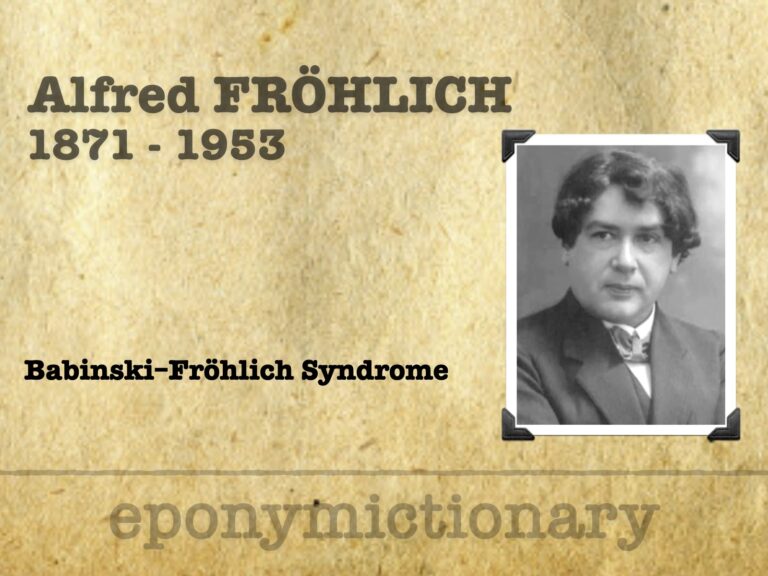
Alfred Fröhlich (1871-1953) Austrian neurologist and pharmacologist; pioneer of neuroendocrinology who described adiposogenital dystrophy, linking pituitary lesions to obesity and hypogonadism.
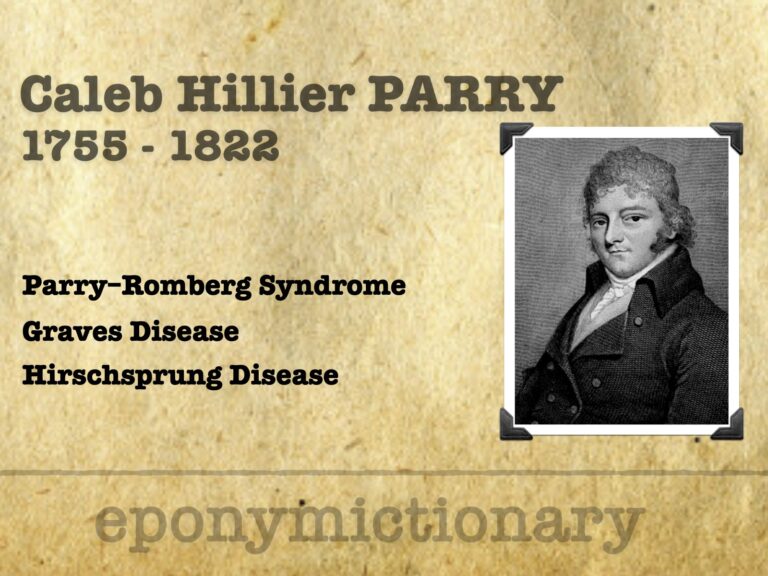
Caleb Hillier Parry 1755–1822 English physician described Hemifacial atrophy; angina pectoris; Hirschprung disease; Graves disease in 1825
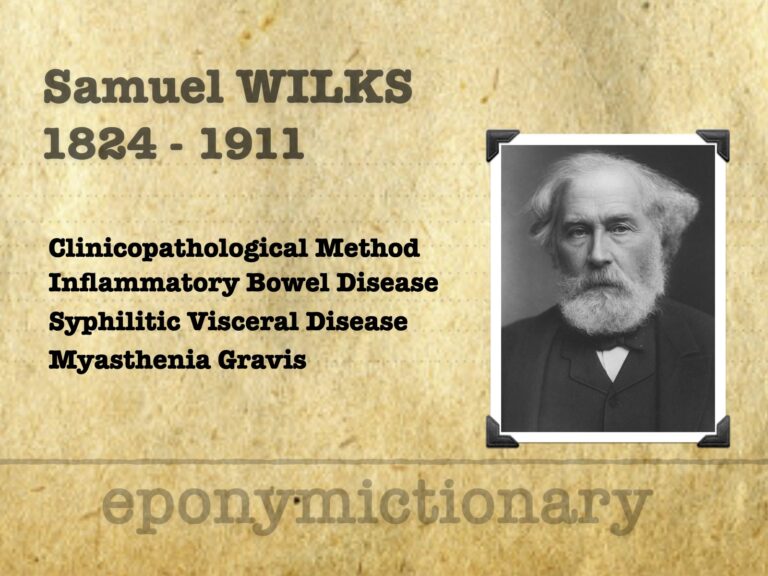
Sir Samuel Wilks (1824–1911), British physician, pioneered clinicopathological correlation, defined Hodgkin’s disease, and led Guy’s Hospital and RCP.
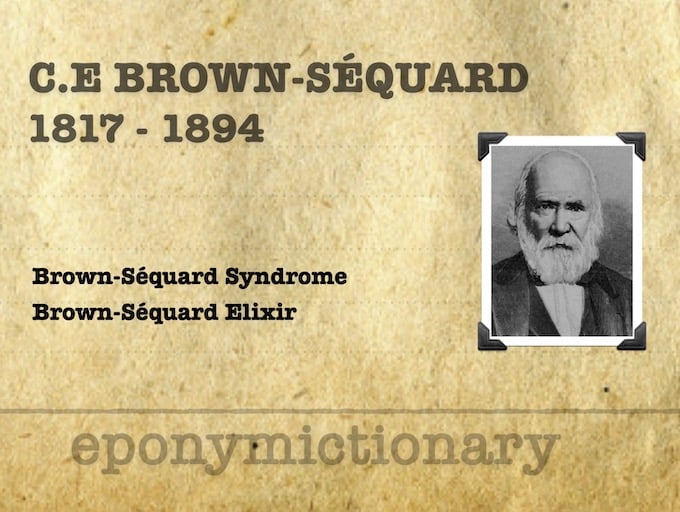
Charles Edouard Brown-Séquard (1817- 1894) was a French physician and physiologist. Brown-Séquard Syndrome (1850); Brown-Séquard Elixir; hormone therapy

Augusta Déjerine-Klumpke (1859-1927) was an American neurologist. Klumpke palsy (1885). First woman in France to receive the title of ‘interne des hôpitaux’ and the first female President of the Societé de neurologie de Paris.

Guy Fontaine (1936–2018), pioneer of ARVD and Epsilon wave, transformed electrophysiology through innovations in cardiac pacing, mapping, and ablation.
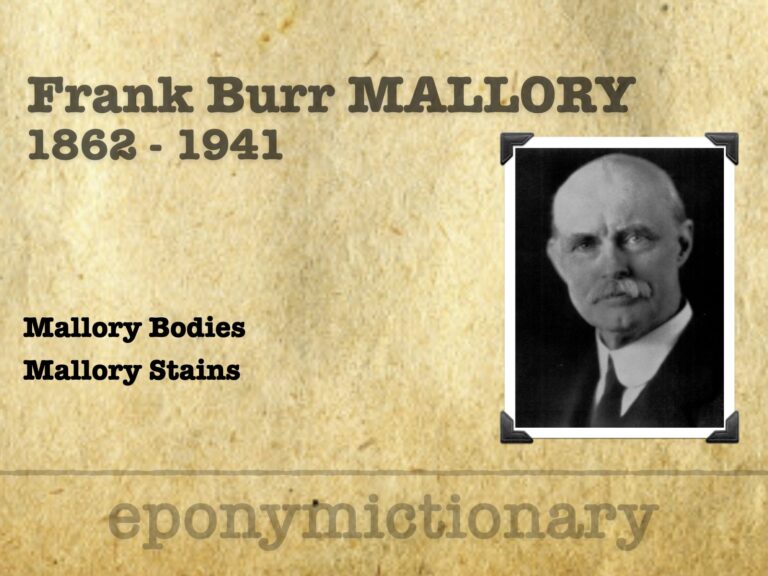
Frank Burr Mallory (1862–1941), American pathologist; pioneer of histological stains, Mallory bodies in alcoholic liver disease
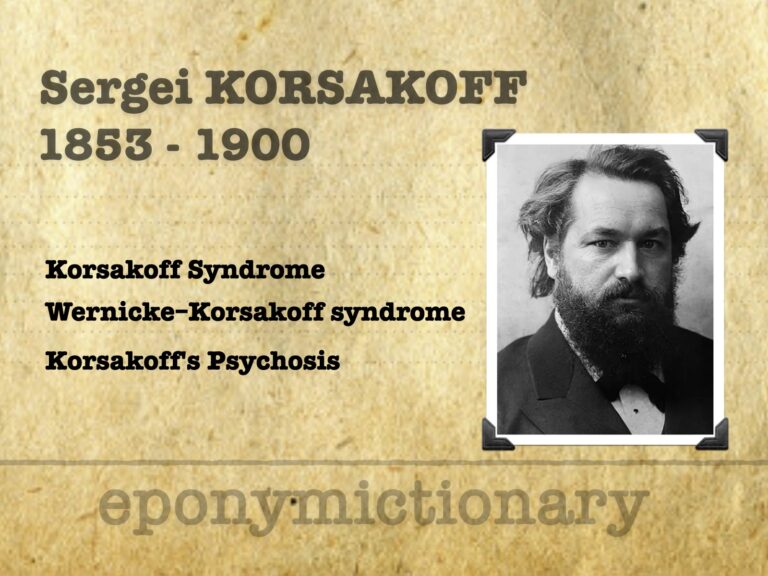
Sergei Sergeievich Korsakoff (1854 - 1900) Серге́й Серге́евич Ко́рсаков Russian neuropsychiatrist, identified Korsakoff syndrome and pioneered humane psychiatric care and memory disorder research.
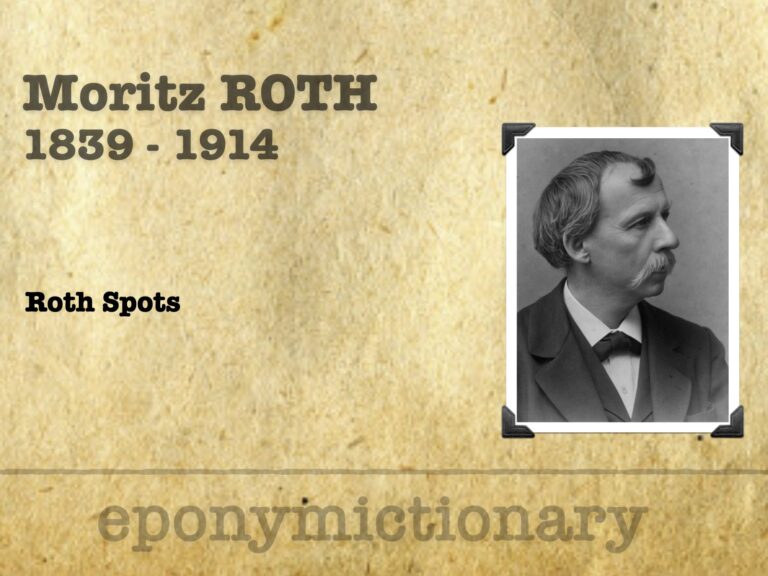
Moritz Roth (1839–1914), Swiss pathologist of Roth Spots. Advanced anatomical teaching and wrote a seminal biography of Vesalius, shaping modern medical historiography

Henry Khunrath Pancoast (1875 – 1939) was an American radiologist. The Pancoast tumour and Pancoast syndrome is named after him
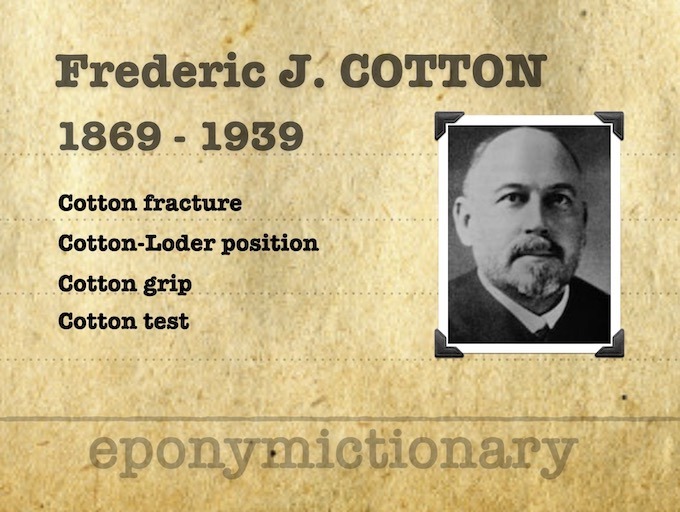
Frederic Jay Cotton (1869–1939) was an American Orthopedic Surgeon. Eponymously affiliated with the Cotton fracture (trimalleolar fracture) and Cotton-Loader position (hyper-flexed wrist with ulna deviation in closed reduction of distal radius fractures)